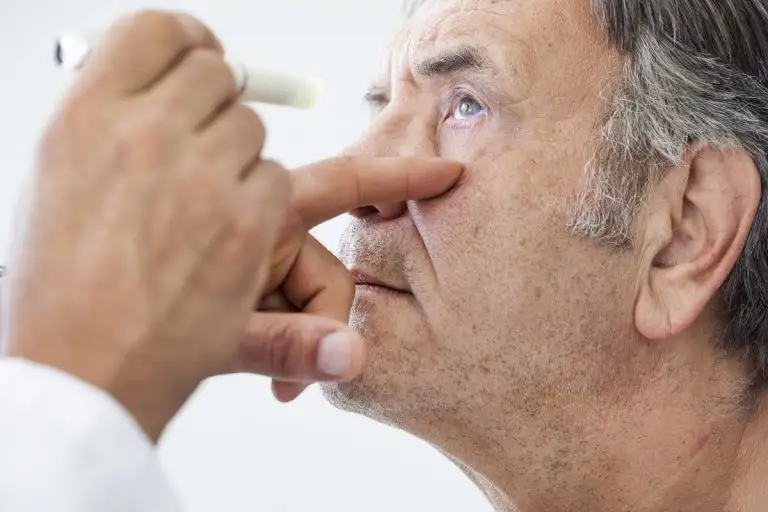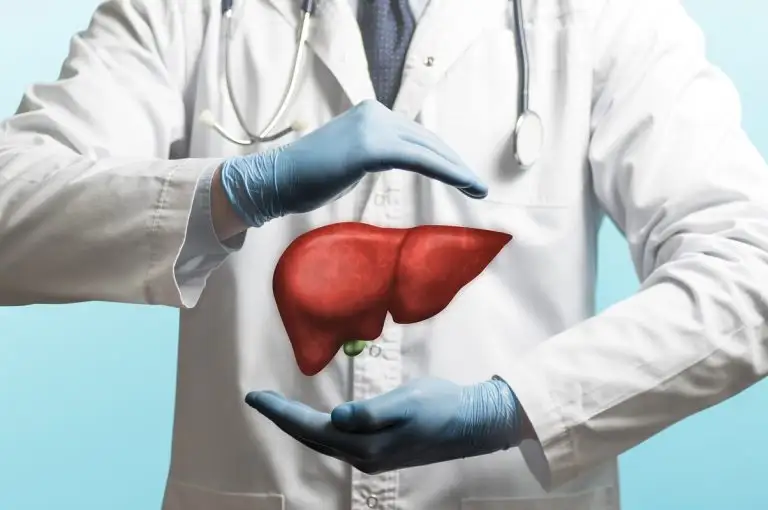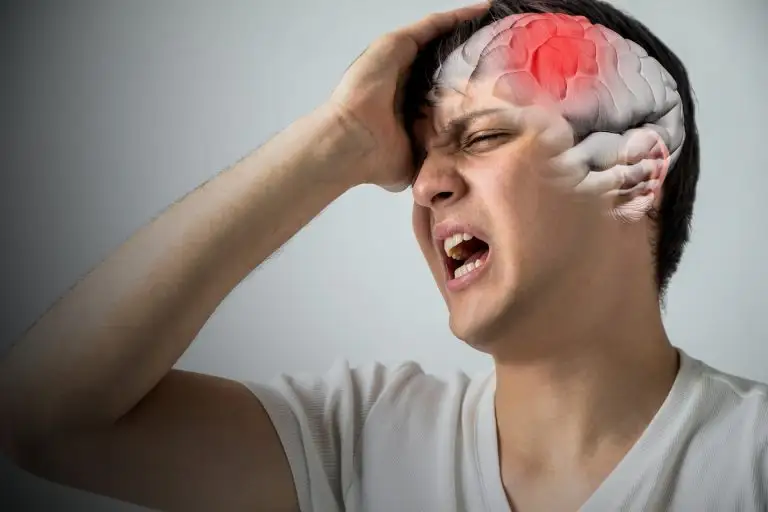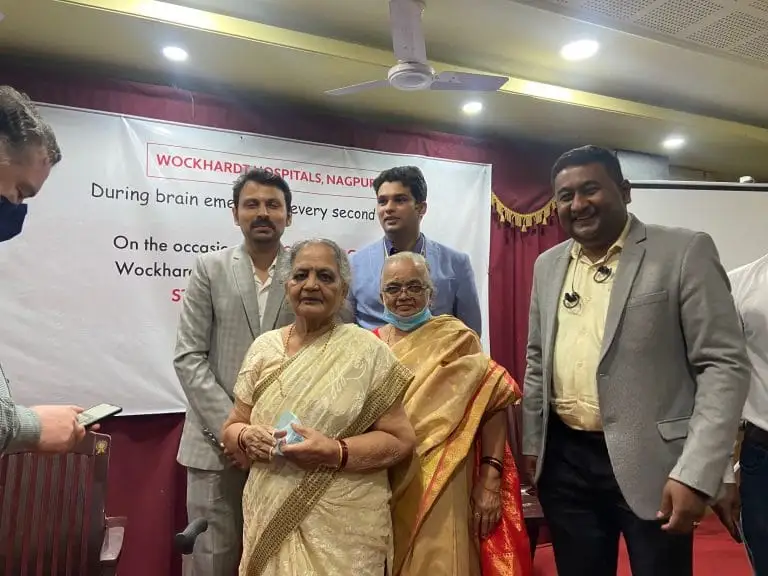Air Pollution Can Play Havoc with your Eyes

As post-Diwali air pollution continues to make news and raise concerns, it is important to safeguard ourselves from the side-effects of toxic pollutants that can cause respiratory disorders, lung cancer, brain or kidney damage, and heart disease in long run. Higher levels of air pollution, in general, can lead to eye conditions like conjunctivitis, eye irritation, or dry eye. A dry eye is a condition where your eyes don’t produce enough tears to lubricate your eye. “Effect of air pollution or eyes manifestation of air pollution can range from minimal symptoms to chronic discomfort and eye irritation. Common symptoms include itching, irritation, chronic discomfort, dry eye syndrome,” says Dr. Sheetal Ballal. Symptoms are higher among contact lens wearers. Poor air quality can accelerate pre-existing dry eye disease, she says. Apart from the above-mentioned eye conditions, high levels of air pollution can also increase the risk of age-related macular degeneration as the pollutants may enter the bloodstream and damage the small blood vessels within the eye. Studies also suggest that pollution can increase our risk of developing an eye condition called glaucoma that can cause blindness. Can Pollution Lead to Permanent Loss of Vision? There have been instances when people have lost their eyes due to eye allergies, one of the conditions that occur due to air pollution. “Pollutants are very common causes for eye allergies and dry eyes. Disruption of the protective atmospheric UV layer increases the risk of retinal damage (ARMD) and visual loss. One of my young patients, an 18-year-old girl lost one eye permanently. She had developed eye allergies. She had shifted to Mumbai from her hometown. We had asked her to use steroid eye drops for 1 week and to follow up but she self-medicated and came after 6 months with glaucoma and permanent loss of vision in one eye,” says Dr. Sandeep Kataria, Consultant Ophthalmologist, Wockhardt Hospitals. Moving away from the polluted environment can improve eye health and benefit people with eye allergies. “I see patients’ eyes getting better when they go to their home town during summer vacations. That’s really powerful proof. I also saw a marked decrease in eye allergies during the covid lockdowns,” he adds. Protecting Eyes from Air Pollution Dr. Kataria and Dr. Ballal suggest ways to protect your precious eyes from the harmful effects of pollution Source: https://www.hindustantimes.com/lifestyle/health/air-pollution-can-play-havoc-with-your-eyes-here-s-how-101636539644755.html
A doctor reveals the repercussions of sleeping for less than 6 hours every day

Nothing feels right if you haven’t had a good night’s sleep. That’s why you might have heard your friends say that they can sleep at any point! So, what’s the reason behind this? Well, they ignore their sleep and stay up until the wee hours of the night. That’s when their health starts to deteriorate. Here are 7 SHOCKING things that CAN happen when someone sleeps for less than 6 hours: According to Dr. Pritam Moon, consultant physician, Wockhardt Hospital Mira Road, Mumbai, most of us take our sleep for granted. No wonder, we are struggling with various health issues today. Oh, and the younger lot is at the center of it all! But why do some people sleep less? “It is also common in the case of new moms. That’s because a changed schedule due to a new baby can disturb the sleep of the mother,” says Dr. Moon. Source: https://inside.news/2021/11/09/a-doctor-reveals-the-repercussions-of-sleeping-for-less-than-6-hours-every-day/
No kidding: Do parents really know what their children are doing?

Do Parents Know What Their Children Are Up To And What They Can Do Better? Parents are Boomers. Kids are Zoomers. With the kicky feeding frenzy that social media, its spin-offs, and peer pools are shaking up today, the mutual trust within la Familia is tottering on the stilts of young adult secrets. Admit it. There was a certain degree of power Boomers wielded in the kid domain when the now-juniors were toddlers. Not anymore. A surreal climate change has been happening through remote learning. With millions of online-spending-time tykes turning Kidults, and sharenting and conscious uncoupling becoming the norm, the relationship between parents and children is oscillating sharply. From warfare narrative to an I-spy commando course to clueless parental presence, it’s all out there. The recent developments in Aryan Khan’s life sharply spotlight the vital question which has been hovering and humming like a background score in everyone’s subconscious: Do parents really know what their kids are doing? Despite being a single divorcee parent, Delhi-based entrepreneur Shikha Sharma* gave it all to raising her daughter Ananya—the best of education, life experiences, and value systems. She firmly believed that her intelligent always-top-of-the-class kid was different from the wayward children of her friends. Eighteen-year-old Ananya*, to all outward appearances, was the rare teenager with a single-minded focus on studies and getting a seat in an Ivy League college. No distractions for her—no partying (raves, absolutely not) or demanding boyfriends. One day Sharma returned home a day earlier than scheduled from a work trip and walked into her daughter’s room to a shocking sight: Ananya was on a video call with three other girls—all masked and each one naked to the bone—pleasuring herself. Sharma went ballistic when she realized that she had walked in on a virtual act of communal yet anonymous sex. Later, even with counseling, she found it difficult to come to terms with the fact that her understanding of her own child was so incomplete. Then there is Prithvi Goel*, a young boy who meets girls through dating apps. Since he lived with his parents and grandfather, he would never bring them home. One night, however, when there was no other place to go, he sneaked his date into his room at 1:30 am and he shuffled her out four hours later. When he woke up around lunchtime, feeling rather clever about his escapade, his 87-year-old grandfather smirked, “Did you have fun?” Embarrassed at first, he soon joined his grandfather’s guffaw, realizing that the secrecy had been unnecessary. “Parents are humans too. In the dynamic world, we live in, we don’t know what we are doing ourselves. Hence, it’s silly to assume that we’d know what our kids are doing all the time. Of course, we like to believe that we do, it gives us a pretext of being a ‘concerned and responsible parent, but the truth is far from it,” says Arouba Kabir, Gurugram-based mental health counselor and founder, Enso Wellness, adding, “The story with young adults is like a thriller with new twists and turns every day —hormonal swings, making new friends and relationships, developing curiosity towards unexplored spheres of life and so on. It is also the time when the sense of ‘being an adult’ sets in their mind, and at this vital point, your relationship with your child is put to the litmus test.” THE TRAGEDY OF UNBELONGING Like Ananya, 15-year-old Ankita Dua*, daughter of a bank employee and a schoolteacher, was on track to becoming the head girl of a prominent Mumbai school. She had friends with rich parents but could not afford their lavish lifestyles. When an end-of-year ‘conti-party’ (teen slang for the continuation of the school farewell celebrations) was around the corner, her tony friends bought matching designer dresses, the price tags equal to her father’s salary for three months. Desperately wishing to keep up with the ‘It’ crowd but too embarrassed to ask her parents, Ankita saw an opportunity when the class teacher absentmindedly left her solitaire engagement ring on the table in the classroom. Unmindful of CCTV cameras, Ankita stole it with the intention of hawking it at a pawn shop her mother went to when money was short. The desperate teen was caught and immediately suspended from school. Worse, she was humiliated in front of her friends with whom she wanted to ‘belong’ by committing the crime. Her middle-class parents, too ashamed to deal with the fallout, quietly packed her off to Indore to live with her grandparents. There is no class distinction when it comes to teen behavior. In what he jokingly terms the ‘Bareilly Ki Barfi Syndrome’, Feisal Alkazi, theatre personality, educationist, activist, and counselor for 40 years with NGO Sanjivini, observes that when young people land in Delhi from satellite towns like Meerut, Alwar, Bareilly, etc, they get enormous culture shock. Arriving from modest backgrounds, with nose-to-the-grindstone upbringings, they secure seats in the city’s top colleges and move into paying guest accommodations. Here, they begin to interact with city girls and boys whose lifestyle is absolutely alien to them; expensive makeup, big cars, wild parties, and general freedom of thought and action. They start believing they must assimilate to gain the acceptance of this trendy crowd. Soon, they are going to or having parties, and use dating apps like Tinder, Bumble, and Hinge for instant gratification. “A young girl was consulting me for her depression. One morning, she came in and said, ‘Today is a great morning because 12 guys swiped right’. She was thrilled. Many first-time couples who meet online have shared with him that they end up having sex on the first date itself. Such situations make it impossible for such young adults to bridge the gap between where they come from and who they want to be. They start lying to their parents and lose respect for them. They go back home for holidays only to be badgered with traditional concerns like marriage. They’re not ready to settle down after having dozen-odd casual
Can Breastfeeding Improve Blood Sugar Levels?

Diabetes is not good for anyone – be it children, older adults, or even expectant mothers. During pregnancy, blood sugar levels are likely to mess up, leading to a condition known as gestational diabetes. This condition does not necessarily mean that the patient has a history of diabetes and will be sure to have it after birth. However, if you are unable to properly control blood sugar levels, it can later increase your risk of type 2 diabetes. Is There a Natural Remedy for Controlling Blood Sugar After Having a Baby? It turns out that breastfeeding can naturally lower blood sugar levels after giving birth. Breastfeeding is also known for its weight loss benefits, lower risk of cancer, anxiety, rheumatoid arthritis, and heart disease. In addition, experts recommend feeding on both breasts to strengthen the mother-child bond and reduce the risk of inflammation. In an interaction with Times Now Digital, Dr. Gandhali Devorukhkar, Consultant Gynecologist and Obstetrician at Wockhardt Hospitals, on how breastfeeding can lower maternal blood sugar levels by 25%. The expert also shed light on other benefits of breastfeeding after childbirth and whether it is safe to breastfeed a baby while taking insulin and diabetes medication. “About 5-9% of pregnant women in India develop high blood sugar levels even though they did not have diabetes before pregnancy. This condition is known as gestational diabetes, which significantly increases a woman’s risk of developing type 2 diabetes later in life. In type 2 diabetes, the cells do not respond properly to insulin, a hormone that signals the cells to take up the sugar glucose from the blood. If left untreated, blood sugar levels can rise and cause various health problems, including blindness, heart disease, stroke, kidney disease, and amputation. According to one study, breastfeeding increases insulin sensitivity and improves glucose metabolism in the mother. In addition, most diabetes drugs, including insulin and metformin, are safe to use, ”said Dr. Devorukhkar. Breastfeeding Tips for Mothers with Diabetes The American Diabetes Association lists some safe and healthy breastfeeding tips for mothers with diabetes. Source: https://newsbeezer.com/southafrica/can-breastfeeding-improve-blood-sugar-levels-experts-answer-faqs/
Mistakes to Avoid While Drinking Water

Hydration is extremely important to keep your body functions running efficiently. But what if your drinking water habits are not right? If vitamins, minerals, protein, fats, water, and carbohydrates are essential for survival, so is water. It not just keeps us hydrated, but ensures that our body functions properly. No wonder that health experts advise us to drink at least eight to ten glasses of water every single day. When it comes to drinking water, the ample quantity is not enough to take care of. You should also know the right way to drink water for better health. Most of us make common mistakes such as drinking water while standing, and these kinds of mistakes can put us in trouble. Here are 4 Mistakes to Avoid While Drinking Water: 1. Do not drink water while standing Aren’t we all just used to sipping on water while standing? Although you might have never thought about whether this is the right way to drink water or not, you may have been reminded by your elders at least once that water must be consumed when you are in a sitting position. Dr Pritam Moon, consultant physician, Wockhardt Hospitals, Mira Road, tells HealthShots, “One’s nerves get tensed while drinking water when standing. It can disturb the fluid balance, and cause indigestion.” In fact, Ayurveda also refuses to stand and drink water. Because by doing so water goes to the lower part of the stomach, and we will not get nutrients. 2. Avoiding gulping water quickly Whenever we are in a hurry, we try to drink water in one breath as much as we can. But it’s harmful. “If you are in a hurry, just do not gulp the water as the impurities in the kidney and the bladder can accumulate below. Just have small sips of water to aid digestion,” says Dr Moon. Therefore, it is advisable to have water slowly as it has various benefits. 3. Avoid drinking water just before the meal Ayurveda says that your stomach should be filled with 50 percent food, 25 percent water, and 25 percent should be left empty for the digestive process. That’s why drinking water just before eating a meal is not a great idea. “Doing so can make you feel fuller, and then you will not be able to eat enough food. You will not be able to get the right amount of nutrition and this can even disrupt digestion. Then, you may also get problems like nausea and constipation,” says Dr Moon. 4. Adding artificial sweeteners Artificial sweeteners may contain zero calories but studies have shown that may promote weight gain and risk of certain health conditions. Not just that, sugar increases your body’s water needs due to the amount of water required to metabolize sugar. So, while sugary drinks may taste refreshing at first, they can actually be dehydrating. Dr Moon says, “If you are one of them who tends to add any artificial flavors or sweeteners to the water, stop doing that right away. Try to avoid anything with sugar, high fructose corn syrup, aspartame, or sucralose. Instead of that, you can opt for lemon, mint, or herbs.” Now that you know, don’t repeat these mistakes now! Source: https://www.healthshots.com/preventive-care/self-care/common-mistakes-people-make-while-drinking-water/ FAQs on Gulping Water Q. How to drink water correctly? Sit or stand upright while drinking water, and try not to consume it too quickly. Drink water at room temperature and gently to facilitate digestion. Water should be consumed before and after meals, but not when standing. Q. Is gulping water bad for you? Gulling down a lot of water might result in bloating, pain, and potential digestive problems. To ensure optimal absorption and avoid any pain, it is recommended to sip water gradually. Q. Is it better to take small sips of water? Small sips of water are better as they provide for adequate hydration without overloading the body. Compared to gulping it down rapidly, sipping water gently promotes excellent absorption and avoids bloating or discomfort. Q. Is sipping water better than gulping? It is indeed preferable to sip water rather than consume it rapidly. As your body has more time to properly absorb the water when you sip rather than gulp, you may stay more hydrated and avoid pain and digestive problems. Take little, steady sips to remain adequately hydrated without overloading your system. Q. Is it better to drink water fast or slow? Water is best consumed slowly as opposed to quickly. Your body can absorb water more efficiently when you sip it gently, which leads to improved hydration. Drinking too quickly can cause bloating, discomfort, and problems with digestion.
Is your Liver Doing Fine?

Has your health, hair, skin, and mental well-being gone for a toss? Are you unable to figure out a reason? If yes, we suggest you see a liver expert ASAP. Even a small pimple on the face can give us sleepless nights. Not just that, even if our tresses start to fall (every now and then), panic ensues and we scout for all the dermatologists in our vicinity. But what do you do when you experience fatigue, indigestion, or a sudden loss of appetite? We’ll answer this for you. Nothing! You may wonder why we’re saying this, right? Well, that’s because most of us turn a blind eye when it comes to the health of our liver. That’s also because we are unaware of how vital this organ is! Liver is one of the most important parts of your body. Treat it like the fuel pump of your body, because whatever you eat to keep yourself energized, it is your liver’s responsibility to metabolize it for proper functioning. Now think what’s going to happen if such a pivotal organ of your body collapses? No points for guessing, the entire system will fall apart. Although it happens when you age, the beginning is somewhere in your late 20s or early 30s. Your lifestyle choices and eating habits play a crucial role, in order to make or break your liver health. Having said that, there are certain cases where liver issues are a consequence of some other illnesses. But how would you come to know that your liver is headed towards destruction? Well, for that you need to listen to your body. Here, We Tell you What Happens When the Liver Stops Functioning Properly: 1. Liver failure: This is seen when the liver doesn’t function well enough to manufacture bile, and is unable to flush out harmful substances from the body. One may show symptoms such as nausea, loss of appetite, and blood in the stool. One may also require a liver transplant, if the liver is damaged. 2. Infections: “Inflammation of the liver means hepatitis. It is commonly seen when the liver doesn’t function properly, and there is liver damage. Hepatitis A and E happen due to eating or drinking something that’s tainted by faecal matter,” says Dr Tibdewal. Hepatitis B is seen due to unprotected sex or sharing needles. Hepatitis C can strike, when infected blood enters your bloodstream. Hepatitis D is spread when blood or other body fluids from the one who is infected with the virus enters the body of someone who is not infected. 3. Scarring of the liver: Also called cirrhosis, it is a late stage of fibrosis of the liver caused by liver diseases and conditions such as hepatitis and chronic alcoholism. This is commonly seen when the liver doesn’t function properly due to various factors like liver disease, obesity, diabetes, viral hepatitis, and alcohol. 4. Liver cancer: “Liver cancer is cancer that’s found anywhere in the liver. Chronic infection with the hepatitis B virus (HBV) or hepatitis C virus (HCV), or a nonalcoholic fatty liver disease, wherein one can see an accumulation of fat in the liver, and excessive alcohol consumption can disrupt the functioning of the liver, causing cancer,” warns Dr Tibdewal. The Last Word Just in case you are one of those who believe you don’t fall under this category, because you stay miles away from booze. Well, we have some news for you! There are two kinds of liver deformities – one is alcoholic, which is the most common one, and the other is fatty liver, in whidch case it doesn’t matter whether you drink or not. So stop being in denial mode, and stay informed for the love of your liver! Source: https://www.healthshots.com/preventive-care/self-care/liver-problems-signs-that-your-liver-is-not-working-properly/
Identify and Be Fast to Handle Stroke

Doctors have said that recognizing symptoms and quick treatment can tackle the cases of strokes, which are also gripping the youngsters. They added that stroke identification can be done with vital signs like Be Fast. B stands for trouble with balance, E for vision loss, F for facial expressions change, A for arm weakness and S for slurring speech. T stands for reaching a nearby hospital with stroke care facilities in time. A stroke happens when the blood supply to part of the brain is hampered, causing damage or death of the brain cells. There are two types of strokes, ischemic stroke that occurs due to the clot formation in the blood vessel supplying to the brain. The other one is haemorrhagic stroke, which is seen when the blood vessel supplying the brain ruptures causing leakage of blood into the surrounding brain. Nowadays, many youngsters are also diagnosed with this condition. Some of the risk factors for stroke in younger adults are smoking, heavy drinking, diabetes, obesity, illicit drug use, binge drinking, family history. In an event at Wockhardt hospital in Mumbai where stroke survivers were present, Dr. Pavan Pai, Neurologist, said, “Stroke is claiming millions of lives each year. It can happen anywhere and to anyone, so timely treatment is essential as every minute is precious.” He informed that around 230 stroke patients were successfully treated at Wockhardt Hospital from September 2019-September 2021. “Out of which, 144 were males, 86 were females. 23 patients in the age group of 31-40 years, 36 in the age group of 41-50 years, 59 patients in the age group of 51-60 years, 100 patients in the age group of 61-80 years, and 12 patients above 80 were successfully treated at the hospital,” he added. Source: http://www.drugtodayonline.com/medical-news/review/14225-identify-be-fast-to-handle-stroke-doctors.html
Dangers of Ignoring Your Back Pain And Spine Problems

Neglecting spine problems can invite further complications that can impact your quality of life, and may leave you with unbearable pain. Do you have excruciating back pain? Are you unable to sit, stand or walk properly? Cannot carry out your daily chores with ease due to back pain? Have neck pain too? Is there any difficulty in balancing as well? Then, it is time to consult the doctor as this can indicate a spine problem. It is imperative to avoid ignoring spine problems and get a prompt diagnosis of the underlying condition who are suffering from. Neglecting the problems can invite further complications that can impact your quality of life, and may leave you with unbearable pain. Spine problems can be seen when any part of the spinal cord or nerves at the end of the spinal canal (cauda equina) get damaged due to injuries or accidents. There will be permanent changes in one’s strength, and other body functions below the site of the injury or the problem. Spine issues can also lead to back pain that will steal your peace of mind. Here are various spine problems that can take a toll on your overall well-being. Dr Ashwin Borkar, Consultant Neurosurgeon specialized in brain and spine surgery, Wockhardt Hospital, Mira Road talks about why one should not ignore spine problems and how back pain can land you in trouble if ignored. Know about various spine problems: A herniated disc can be seen when the cushioning has shifted and is bursting out of its casing. Muscular strain is seen due to overuse, stress and poor posture as the muscles near the spine get pressurized. This too can cause neck and back pain. Scoliosis means abnormal spinal bending or curvature and the pain can be categorized as minor to severe. Whiplash is a neck injury that can be seen due to sudden jerking or motion of the head. Moreover, it damages the intervertebral joints, discs, and ligaments present in the neck. Osteoporosis is a common spine problem that the majority of older adults encounter. It can lead to weakened bones due to a lower bone mass. Weakened bones in the spine tend to get brittle and damaged inviting fractures, and a hunched posture. Sciatica is a condition in which a person has sharp shooting pain radiating to legs associated with backache. Spondylosis is a general term used to describe pain from degenerative conditions related to the spine. All these spine conditions will need timely attention. The symptoms: One will exhibit symptoms like loss of movement, loss of bowel or bladder control, spasms, pain, or an intense stinging sensation due to the damage to the nerve fibres in your spinal cord, breathing problems, coughing, numbness, tingling, or loss of sensation in your hands, fingers, feet or toes, difficulty in walking, weakness, nausea and/or vomiting, stiffness and also tightness. Ignoring spine problems will land you in trouble: If not dealt with at the right time then there will be numbness or paralysis on an immediate basis or slowly and gradually. This can lead to permanent walking problems, and deteriorate your quality of life. One will struggle to do his/her basic activities with ease and may require constant assistance. Do not delay treatment and seek proper medical attention. The treatment will vary from one person to another depending on the symptoms and the underlying condition that one is detected with. Some tumours causing backache with radicular pain can be cured permanently by microsurgical excision. Prompt consultation with a spine surgeon, an early diagnosis and spine surgery can improve quality of life. Source: https://www.india.com/health/dangers-of-ignoring-your-back-pain-and-spine-problems-5069606/
Stroke Support Group

Wockhardt Hospitals in Nagpur has taken a great initiative to start a “Stroke Support Group”. The group has been started with an aim to create a sense of motivation among stroke survivors and spread awareness among the masses. Dr. Amit Bhatti, Consultant Interventional Neurologist, and Stroke Specialist will be guiding the project. The day marks the felicitation of those who recovered from stroke- “the stroke conquerors”. The group will meet quarterly and discuss their experience with stroke and stories of their own survival & treatment. “Time is of the essence in the treatment of acute ischemic stroke because when a stroke occurs due to a clot, about 1.9 million neurons die every minute until medication or interventional neurological procedures clears up the clot that’s blocking or reducing blood flow to the affected brain area. The sooner you get to the hospital, the better” said Dr. Bhatti. Interventional Neurology is a highly specialized branch of neurology for which only a few consultants are available in the region and Dr. Amit Bhatti is one of them. While speaking on the occasion, Dr. Bhatti also emphasized the causes of stroke, its prevention, and the importance of immediate medical care in the case early signs are witnessed in a patient. An ischemic stroke occurs when the blood supply to part of your brain is interrupted or reduced, preventing brain tissue from getting oxygen and nutrients due to which brain cells are also known as neurons start to die in minutes. Stroke is a medical emergency, and prompt treatment is crucial. Early intervention can reduce brain damage and other complications. To identify the early signs of stroke, the acronym BE FAST (Balance, Eyesight, Facial drooping, Arm weakness, Speech difficulties, and Time) is being used. Anyone who has these symptoms should be considered to have been suffering from an acute stroke and must seek a stroke-ready hospital where expert stroke care is available around a clock. During the event Centre Head Mr. Abhinandan Dastenavar said that Wockhardt Hospitals are taking a new step in the direction of achieving a new milestone every day. “We have been known for handling high-end cases, not just in the city but the entire region and stroke is one of them. We are launching this support group to spread awareness among the people and ensure that they know the importance of time when it comes to stroke. They are sharing their experiences and learning”, he added. A special guest at the event was patient Mrs. Prerna Suryawanshi who was treated for a stroke in Wockhardt Hospital. She shared her experience in the event and thanked the entire team of the hospital for contributing to saving her life. During the launch of this support group, its first session was held simultaneously in which patients expressed their journey towards fighting stroke and winning the battle. Wockhardt, a stroke-ready hospital, is also having a dedicated stroke team. This event was concluded by felicitating the stroke staff with certification who have received special training for the same. Source: https://www.nagpurtoday.in/world-stroke-day-wockhardt-hospitals-nagpur-starts-stroke-support-group/10290825
Is Your Parent Going for a Liver Transplant? Use These Tips to Ease Them Through It

Are any of your parents undergoing a liver transplant? If yes, it is important for you to keep in mind these essential tips. Organ transplantation can save lives, more so in the case of complex organs like the liver. An individual requires a liver transplant when he/she has a damaged liver, owing to end-stage liver disease (chronic liver failure). This is a serious, life-threatening liver disease, and can be caused as a result of several liver conditions. Cirrhosis is a common cause of end-stage liver disease, and many patients who suffer from it, need liver transplantation. Here, the injured liver is replaced with a healthy liver from another person, who is referred to as the donor. Depending on the condition, the whole liver or a part of the liver can be replaced. It is a known fact that having a healthy liver is required for longevity, as the liver is responsible for filtering blood and flushing out toxins from the body. It is also the need of the hour to take utmost care of someone who is undergoing a liver transplant. Thus, if any parent of yours has been asked to opt for a liver transplant, don’t worry as we have got you covered. Here Are a Few Tips That You Must Keep In Mind if Your Parent is Undergoing a Liver Transplant Source: https://www.healthshots.com/preventive-care/family-care/how-to-help-your-parent-when-they-are-undergoing-liver-transplant/














